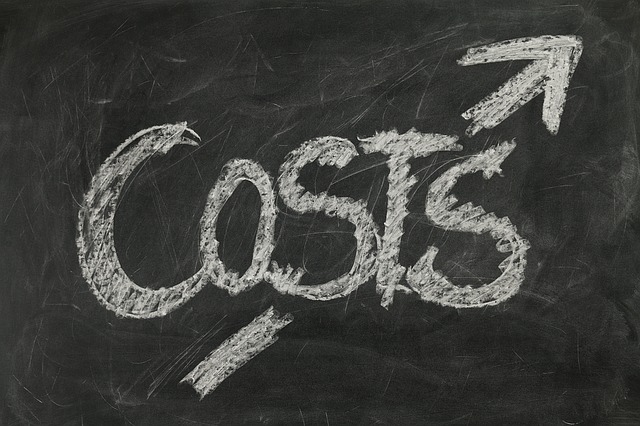Cheap vs. Frugal
It’s common for people who monitor their spending to be labeled as “cheap” or “frugal.” Although these terms may be used interchangeably, some distinctions may help differentiate between cheapness and frugality.
Both individuals aim to save money on large and small expenses, such as home renovations or groceries. Typically, cheap people will gravitate towards the lowest-cost items irrespective of the quality. Conversely, frugal shoppers will consider both the quality and cost to get the most out of their spending.
There are a few ways to implement a frugal lifestyle that could help save you money without sacrificing quality.
Difference Between Frugal and Cheap
 Cheap and frugal people try to restrict their spending to a minimum. The measures for achieving that aim, on the other hand, are frequently very different.
Cheap and frugal people try to restrict their spending to a minimum. The measures for achieving that aim, on the other hand, are frequently very different.
Frugal spenders aim to get the most value out of their money. Therefore, they spend their money on important things. Conversely, a cheap person is solely concerned with the cost.
While those who are cheap attempt to find the best deal on everything they buy, frugal people are prepared to make allowances for essential items.
Situational Example:
If you never leave a tip while eating meals with friends, you may develop a reputation for being cheap.
However, ordering water instead of a costly beverage at a restaurant does not hurt others, and you’re likely to be seen as economical.
The most important distinctions between cheap and frugal are:
Frugal
- Seeks to save money.
- Values both price and quality. A thrifty individual values low-cost items but does not compromise on quality.
- Prefers to spend money on goods with great value.
- Sees the broad picture.
Cheap
- Driven by saving money.
- Will buy the lowest-priced goods regardless of quality.
- Concerned with cost-cutting.
Cars
 When it comes to purchasing a new car, there is a fine line between being cheap and frugal. Some buyers may seek the lowest costing option possible, even if it means compromising on safety, quality, and features.
When it comes to purchasing a new car, there is a fine line between being cheap and frugal. Some buyers may seek the lowest costing option possible, even if it means compromising on safety, quality, and features.
Searching for the most inexpensive option may mean opting for a used vehicle. Although there are many great used options, you’ll likely have to settle for an older model or one with extra miles. Ultimately, choosing a lower-priced car can mean that you will need to forego many amenities.
Making frugal choices, on the other hand, can be wiser. For example, when buying a new car, being frugal can save you a ton of money on features you do not necessarily need. For instance, while you may go for a well-made car, you can omit those leather seats that will add $1,500 to $2,000 on the total price — and the same goes for heated seats. In other instances, once you have laid down the make and model of your desired car, you can always go for something a few years older.
Here is how to be frugal when car shopping:
- Examine Your Credit
A critical aspect of a car purchase is the interest rate imposed on a car loan. And a strong credit score can ease that load.
- Research Your New Vehicle
Don’t become too attached to one car type, brand, or model. Being picky makes it challenging to find a reasonable price. Consider your daily car necessities, not your occasional desires.
- Discover Ownership Costs
It’s not enough to know the car’s price; you must also consider the cost of ownership. Gas, insurance, repairs, taxes, licensing, and upkeep are all part of the cost of ownership.
Clothing
 Clothing is one of the easier areas where an individual can practice the fine art of frugality.
Clothing is one of the easier areas where an individual can practice the fine art of frugality.
Shoppers seeking cheaper clothing usually gravitate towards items with the lowest cost. While there is no shame in doing so, buying inexpensive clothing may not actually be very cost-effective. For instance, buying poorly made shirts or pants can save you a few extra dollars. However, chances are you will be right back at the store to buy a new pair within a month. Adding this up, you would be spending a lot more buying badly made clothing than you would be making a one-time costly purchase.
Being a frugal shopper will help you save a bit with good sense. Look online for discounts and bargains to save money on clothes. In this case, you are saving up what you need to buy when the time is right. For example, you would not immediately go out to buy a replacement pair of jeans, rather wait a few weeks for those sales to kick in. When shopping with a frugal mindset, you care about quality and saving money at the same time.
Ways to save money on clothing:
- Buy quality and classic styles so they last longer.
- Shop toward the end of the season or during sales.
- Check your closet for new ideas.
Buying a House
 Buying a house is a big financial step, and various considerations should be made before leaping in. Making such a large purchase requires evaluating your income and expenses. Ultimately, you will be dedicating a big chunk of your savings and monthly income to mortgage payments.
Buying a house is a big financial step, and various considerations should be made before leaping in. Making such a large purchase requires evaluating your income and expenses. Ultimately, you will be dedicating a big chunk of your savings and monthly income to mortgage payments.
Possibly, one of the only pros of buying a house with a cheap mindset is that it will save you a ton of cash. But the question remains, at what cost?
Those seeking a low-cost option may rent instead. However, renting may cause you to spend more money than you would on a mortgage. In addition, you wouldn’t own the property either. Conversely, buying a cheap house could land you in some hot water. Trying to find the lowest-priced home available may cause you to purchase a home that costs more money to fix.
Frugality when making such an important economic decision can come in handy. Just as always, you are looking to get the most out of your money. Here are a few ways you can be frugal when buying a house:
- No-money-down mortgages
- Low down payment mortgages
- Closing fees paid by the seller or lender
- Think fixer-upper
- Purchasing a bank-owned or short-sale home
An example of being frugal while buying a house can be to go for a fixer-upper. You may get a terrific bargain on a fixer-upper since they sell for an average of 8% less than market value. However, you’ll need to consider the cost of improvements to see whether a fixer-upper is really less expensive than a turnkey property.
Advantages of buying a fixer-upper:
- A lower purchase price: While you’ll have to spend more money on renovations, a fixer-upper property will have a lower list price and demand a smaller down payment.
- Less competition: Because there is less rivalry for fixer-upper houses, you have a better chance of getting the property you want at a good price.
- Possibility to personalize your space: You have complete flexibility to do anything you want with a fixer-upper home after you own it.
- You’re in charge of quality control when it comes to remodeling. You have complete control over the materials, colors, contractors, and other aspects of the project.
Remodeling a House
 Renovation can be a hectic journey, whether you want to fix a few damaged parts or go for an entirely new aesthetic.
Renovation can be a hectic journey, whether you want to fix a few damaged parts or go for an entirely new aesthetic.
When shopping with a cheap mindset, chances are you will be willing to sacrifice the overall quality of your home for a cheaper option. Bargain paint or flooring will eventually peel off, costing more in the long run.
When remodeling a house with a frugal mindset, you are looking for ways to cut costs without losing the quality you would love to have in your home.
Here are a few ways to keep your budget and quality intact:
- Make small changes that give off huge adjustments
- DIY
- Rent the tools
- Compare prices from different stores
- Consider needs and wants before buying
- Buy used things
For example, you can DIY renovate your kitchen floors rather than hiring someone. There are many useful online resources that can help teach and guide you through the process. It is best to conduct thorough research before getting started. Ultimately, DIY can help save you a ton on labor costs, and it can even teach you a new skill.
Groceries
 Like all necessities, groceries consume a large portion of your monthly salary. From needs to cravings, groceries are one of the top expenses on the list.
Like all necessities, groceries consume a large portion of your monthly salary. From needs to cravings, groceries are one of the top expenses on the list.
Being cheap while grocery shopping may result in some poorly made decisions and bad meal habits.
On the other hand, being frugal when shopping is a whole different experience.
Here are some tips to shop mindfully:
- Do your grocery shopping with cash
If you suffer from supermarket overspending, a cash-only approach could help. Bringing cash means you can only spend what you have, which is one of the easiest methods to limit your purchases to necessities.
- Plan meals ahead of time
Plan your meals for the week to save money on shopping. Make a list of your favorite recipes and the items you already have in the fridge and pantry. Planning meals helps you use the items you buy more than once and efficiently. This will save you from throwing those items away after just one use.
- Choose your recipes based on sales
Every week, go through the grocery store circulars and plan your meals around the sales. If something is on sale and can be frozen (and you know you’ll eat it), buy it for future meals.
- Meal prep each week
Plan your meals, get the supplies, and start cooking. Meal prepping saves money and time by not having to cook every night.
- Look for discount grocers near you
It pays to browse around if you usually shop at the same store. For example, shopping at discount food shops like Aldi may save you a lot of money. These retailers also save you time since they seldom offer coupons since the prices are already at their lowest.
- Buy in-season produce
Seasonal fruits and vegetables are less costly, so stock up on them. That’s easier in the summer, but autumn and winter contain plenty of in-season fruit, too.
Conclusion
From buying in-season groceries to giving up extra amenities on a new car, being frugal can help reduce unnecessary spending when deciding what to spend your money on.
There is a fine line between being cheap and frugal. Choosing cheaper options for the mere monetary gratification of saving a few dollars can cost you more in the long run. So, think frugal and save your bank account from cash outflow later.





